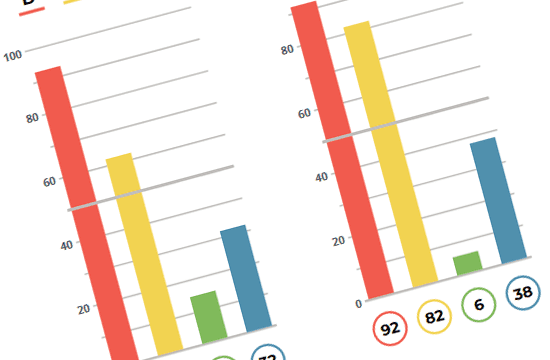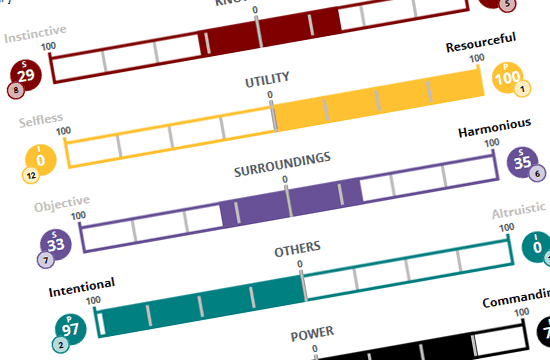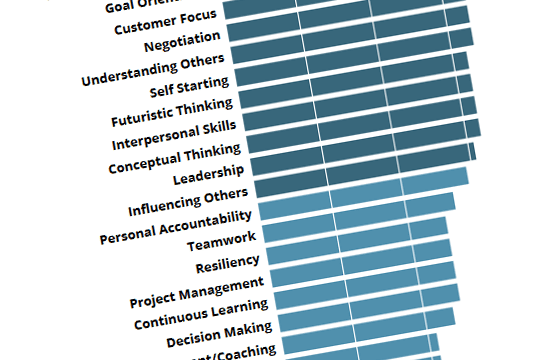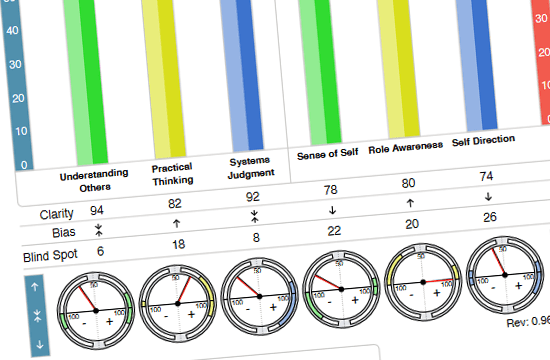Recruitment & Selection

People are multi-faceted
Your approach to Recruitment & Selection should be too.
Recruitment is arguably the most important business function of all. In our global knowledge economy, the only true source of competitive advantage lies in recruiting the best talent. As popular management author Jim Collins notes, “Leaders of companies that go from good to great start not with ‘where’ but with ‘who’. They start by getting the right people on the bus, the wrong people off the bus, and the right people in the right seats”.
Assessment tools help to identify which candidates have the best compatibility for a given job as well as the company culture. These tools can provide the hiring manager with unbiased information that would otherwise not be available through conventional interview measures. The primary purpose of this information is not to make the hiring decision on behalf of the manager, but to help validate or challenge the information provided by the candidate on paper and during the interview process.
Assessments can measure a wide range of things. In each case, they are designed to help provide extra information to make more informed decisions; not to replace human judgment.

DISC Profile in Recruitment & Selection
This assessment measures 4 core behavioural tendencies.
The DISC profile gives the hiring manager additional information about a candidate’s natural behavioural tendencies for dealing with people and tasks. The manager is therefore able get a much clearer picture about what they can expect from the candidate, and how that might contrast with their own management style, the company culture, the other team members, and the nature of the work itself.

Driving Forces Profile in Recruitment & Selection
This assessment measures 12 personal drivers or motivators.
The Driving Forces profile gives the hiring manager additional information about a candidate’s core values so that they can better understand what motivates the person. Motivation is often described as the most important part of job performance because without any underlying passion to learn or perform in one's role, there is no reason to stay with the company. The Driving Forces profile helps select a candidate with the right motivational fit.

DNA Profile in Recruitment & Selection
This assessment measures 25 competencies or soft skills.
The DNA profile is so named because there are 25 soft skills that are the basis (or building blocks) for performance across many different roles. The advantage of the DNA profile is that it allows hiring managers to quickly assess the level of mastery of a large number of competencies and whether each skills is either crucial, important, or somewhat important to job performance.

Acumen Capacity Index in Recruitment & Selection
This assessment measures 3 core dimensions of thought.
Everyone's brain has a unique thought process or model through which we filter and assess our views of the world. These patterns of thought determine our acumen: our ability to make good judgments (related to, but different from, business acumen). Understanding our acumen allows us to understand our natural talents and overall potential.
Your Difference: Multi-Science Profiles
One of the advantages of the TTI suite of tools is that we offer you “multi-science” reports, which provide integrated feedback. With this multi-dimensional view, leaders and managers are able to understand themselves and others at a much deeper level than just using a single assessment. The additional advantage to multi-science assessments is they provide you with a layered development plan for leaders. For example, leaders can work through information on their behavioural style, driving forces, and emotional intelligence in one short sitting or they can tackle it one phase at a time over several months. Multi-science reports provide better options for training, more comprehensive information, and more “ah-ha” moments.
